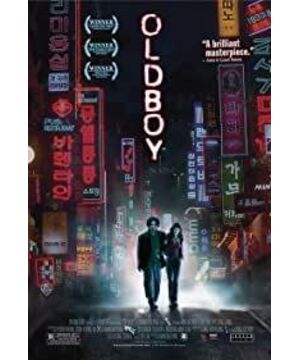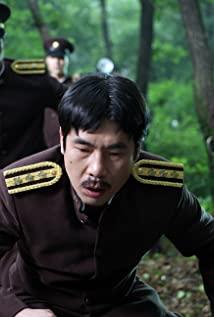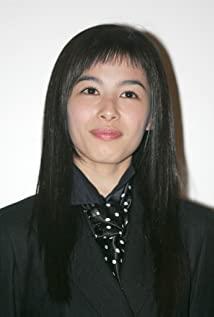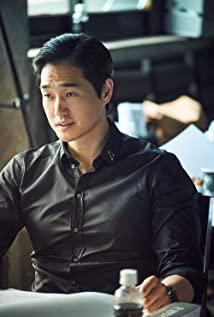1. The lens features in "Old Boy"
"One of the biggest characteristics of Park Chan-wook's film is that through superb editing skills, the past and present time and space, illusion, imagination, memory and reality and other expression techniques are cross-edited together, so that the film presents a multi-dimensional change of colors."
In the film, when Wu Daxiu was imprisoned, he used an iron chopstick to dig through the wall for nine years, but the director only used a soundtrack and a bit of clever editing-dividing the screen into two sections, one section One block has been showing the footage of Wu Daxiu digging the wall, and the other block integrates the major historical events in Korea over the years. The combination of the two fragments makes a long and uninteresting plot clear, and at the same time allows viewers to experience it. Interesting, it also reflects the length of time the hero has experienced and the hard work of digging holes. At the same time, he also paid respect to the movie "Shawshank's Redemption".
The narrative methods of Park Chan-wook's films are based on montage, and the plot arrangement and behavior motives of the story are set ingeniously and delicately. For example, in the middle of the film, Wu Daxiu wanted to find the place where he was detained, and in the "Ziqinglong" fried dumpling shop, he ate the fried dumplings that he often eats when he was detained (Scenario 1, Figure 2-1), and then ran to chase and ride. The takeaway boy of the electric car (camera two, as shown in Figure 2-2), then the camera turned again and went directly to the elevator entrance after the takeaway boy arrived (camera three, as shown in figure 2-3). Only three shots are needed to tell a chase scene, which shows that Park Chan-yu's proficiency in montage techniques, his rich theoretical knowledge, and the extensive amount of film reading.
There are a lot of long shots used in the films directed by Park Chan Wook. He uses long shots to show the story fragments in a period of time and space completely and truly. The long lens refers to a shooting technique, which is the time distance between the start-up point and the shutdown point during shooting. Its advantage is that it maintains the uninterrupted time process. It looks like a simple single lens, but it has extremely high scheduling difficulty. Proper use will make the movie icing on the cake. In the film "Old Boy", there is a fighting scene with a long shot that lasts three minutes. In this action scene, the camera is on one side of the corridor. From the moment Wu Daxiu entered the corridor and started fighting, until the moment he was defeated, the opponent approached, the camera slowly moved from left to right, shooting from beginning to end in the form of a long lens, showing the whole process completely. . This long shot is a great test for everyone, including the director. Everyone needs to perform the whole process in one breath without any mistakes. "It is this kind of super difficult lens design that allows Wu Daxiu. The hatred and anger in the heart are perfectly concentrated in the violence, cruelty, and bloody of the camera, and the violent aesthetics and Wu Daxiu's inner suppressed emotions are fully displayed."
2. The use of background music in "Old Boy"
To judge whether a movie is excellent, you need to not only look at its lens, pictures and plot, but also listen to its background music. Background music occupies a vital position in a movie. It not only enriches the plot, but also fully mobilizes the view. The emotions of the writer have a close interaction with the plot of the movie.
The soundtrack in Park Chan-wook’s movie has its own style, and the music matched with the long shot of the film "Old Boy" is also very good. Wu Daxiu fights with everyone on the promenade. The music is tragic and desolate, and has a taste of tragic heroism. . At the beginning of the fight, the main song of the music sounded and was inspiring. As the protagonist was outnumbered and knocked down by the crowd, the music entered an interlude. Entering the chorus, until the end of the battle, the director used the audio-visual combination to the extreme. After watching this paragraph, it made people excited.
As well as another soundtrack, the culprit who imprisoned Wu Daxiu turned to him for revenge, and the soundtrack of the fragment preparing to pull his teeth used the winter chapter of Violin Concerto "Four Seasons" by Vilvardi, which described the funny people walking on the ice. The posture is a humorous movement. Park Chan-wook brought this piece into the bridge segment of the tooth extraction, reflecting his humorous characteristics, even a little bit evil. When the tooth-extracted pliers are closer to the protagonist’s teeth, the louder the music sounds, giving people a tense atmosphere. When the pliers are farther away from the teeth, the music gradually decreases, giving the viewer a short relaxation time. With the ringing of the mobile phone's ringing, it means the savior comes on stage, and the music stops abruptly.
In the final climax of the film, Wu Daxiu opened the gift Li Youzhen carefully prepared for him. Inside was a photo album. During the process of reading through the album by Wu Daxiu slowly, the background music used "Frantic". The word frantic means nervousness. It’s like crazy, it’s just right to put it here. The albums are arranged in the order of Wu Daxiu’s daughter from childhood to oldest. He flipped through the albums one by one, and the truth was slowly revealed. At the same time, the music gradually became fierce. When all the truth came to light-Wu Daxiu knew his own After the lover is his daughter, the musical climax ends immediately, as if a grand symphony is finished. The soundtrack of Park Chan-wook’s movies is very distinctive, and it often gives people a bright feeling. It makes full use of the combination of audio and video to combine the image seen by the vision with the sound heard by the hearing. The music ups and downs along with the plot.
3. The image of ants in "Old Boy"
The most typical image used in this film is an ant, which also has a surrealistic color. It represents loneliness, anxiety, fear and various negative emotions. Ants appear twice in this film. Once when Wu Daxiu was in captivity, he saw his wife being killed and being framed on TV. Ants appeared on his body. Afterwards, the ants crawled all over his body. The camera surrounded the struggling male protagonist for a week, showing his extreme pain. . The second time, Meidao recalled that when she was crying alone in the subway, she also saw a huge ant on a seat in the distance. Here, Meidao was compared to an ant, but the ant who lived in a group was suffering the pain of loneliness alone. Both of them have the ability to see ants, which also implies that the protagonist Wu Daxiu has an unusual relationship with Mei Dao. "Park Chan-wook regards anxiety and death as the basic state of human beings in film creation. The reason why people are human is because they have the existence of spiritual life, people can feel anxiety and pain, and can clearly know that they will face eventually. To death."
Interpretation of the plot of "Old Boy"
1. Understanding of revenge
Park Chan-wook said about his understanding of revenge: "A society's civilization and education level are developing, and people have to conceal their anger, hatred, and jealousy deeply. But this does not mean that these emotions disappear without a trace. Interpersonal relationships are becoming more and more complex, and anger will grow. As the spiritual burden of individuals in modern society increases, while anger grows, the outlet for venting anger is getting smaller and smaller. This situation is unhealthy."
Self-abuse or revenge in "Old Boy" is more out of the relief of mental trauma and depression. Just as Li Youzhen said when he comforted Wu Daxiu: "When a person is hurt, revenge can alleviate suffering. In a sense, the mentality of revenge is good for health." When thinking about this sentence, it really makes sense, revenge. The desire to inspire people to grow and give people unlimited forward momentum. But thinking about it the other way round, revenge doesn't make much sense. It will bring deeper suffering to the person who has caused him pain. In this way, when is the time to repay the grievances.
In the process of revenge, the male protagonist Wu Daxiu suffered a deeper and more painful blow. Not only was he seriously injured, but he also lost his tongue. What's more terrifying was that he knew the truth that his lover was his daughter. His revenge was only to hurt himself further. Li Youzhen seems to have completed 15 years of revenge against Wu Daxiu, but his enemy is not Wu Daxiu, but the entire society that prevents him from incest. What he does is to let Wu Daxiu experience his own feelings, the pain of loving someone but not being able to love . The director actually left us with an open topic about the meaning of revenge.
Vengeance was talked about in "Battered a Sheep" directed by Wanma Caidan. In the film, Jinba has been looking for his enemy for ten years, but when the real enemy appeared, he saw the enemy’s child, as if he had seen it. The self back then put down the butcher knife. Life is to be able to afford to let go, the hatred slowly slipped away in the constant picking up and letting down. If Jinba had achieved revenge at that time, then many years later, the children of the enemy would also come to the door to avenge himself. Jinba did not choose revenge in the end, and the hatred ended in his hands, reflecting his open-minded mind.
In my opinion, Director Park Chan-wook expressed his anger and helplessness towards the current social situation through the film. Revenge will only make yourself more painful, and not having revenge will slowly breed hatred. There is no way to vent it, but it will only make yourself more depressed. We are not saints, we cannot have such a strong tolerance, and we cannot be nailed to the cross for the sins of all mankind. Wu Daxiu was inexplicably imprisoned for 15 years, and the resentment accumulated in his heart made him nowhere to release, so he embarked on the road of revenge without hesitation. Regarding revenge, it is a very contradictory behavior. Regardless of whether it is implemented or not, the consequences are more harmful than good. This is the director’s helplessness, so revenge is just a choice for us.
2. Tolerance of taboo love
There are two romances in the film, one is Li Youzhen and his sister Li Xiuya, the other is Wu Daxiu and his daughter Mei Dao. The love between Li Youzhen and his sister is ultimately no match for the rumors of the world and the secular moral laws. The love between the two ends in tragedy. The end of the film was shot in the mountains in heavy snow. The mountains far away from society are also far away from the social system that imprisons people, and the silent and pure white snow seems to have eliminated those deadly "rumors" and washed away all sins. But the real salvation may be the last sentence of Mei Dao, "Wu Daxiu, I love you." The incestuous love between Li Youzhen and his sister was destroyed by the social ethical system, but the incestuous love between Wu Daxiu and Mei Dao eventually broke through all imprisonment. From the director's point of view, only love is all-inclusive, and Wu Daxiu actively chose to use hypnosis to forget that the beauty is his daughter's memory. He also redeemed himself through love, and even really saved Li.
3. Interpretation of violence
In my opinion, movies, like painting and music, belong to art, and they are both channels of expression and catharsis of one's own emotions. In real life, we are bound by the law and the three principles and five constants, regulating our various behaviors. Even if we are parallel and misconduct, we will be supervised and controlled by others. However, the situation in the movie is different. Here is not bound by the law. The director can vent his emotions and describe things that cannot be done in reality without any consequences. Movies are free, and often some shots with stimulating scenes will arouse viewers' desire to watch, trigger a strong visual impact, and make movies more interesting and durable. If several directors are asked to express the same idea in different plots, naturally some people will choose to watch a more exciting plot, which will have a more visual experience. The most typical movie is "Kill Bill" directed by Quentin, which is filled with a lot of blood and fighting. It is a visual feast, which embodies the beauty of violence to the extreme. Park Chan-wook’s movies and Quentin’s movies are violent. There are similarities in aesthetics.
The movie "Old Boy" is full of various scenes that make people unbearable to look at directly, including raw octopus swallowing, incest, tooth extraction, tongue cutting, etc., especially the three-minute long shot in the corridor is regarded by fans as The classic among the classics. However, the violence in his films has the beauty of form, and the viewers are often amazed by the artistic form of expression, thus weakening the specific discomfort to the content. Park Chan-wook uses these violent scenes as visual and auditory aesthetic elements that are closely related to the content of the film.
Violence is the most common and common form of human viciousness. Since ancient times, humans must rely on violence to survive and multiply. From a psychological point of view, people do have a fascination with violence deep in their hearts. Violence has long been a moral taboo, adding a lot of mystery to ordinary people. The reason why a thing is taboo means that this kind of thing should be something that people long for in their hearts, otherwise there is no need to make it a taboo. Therefore, the things that people want to see in their hearts, coupled with the artistic processing of movies, have achieved violent aesthetics and become a movie plot that audiences love to see. Park Chan-wook himself should have some yearning for violence, and he has grasped the viewer's appreciation points, and gradually formed his own unique style.
View more about Oldboy reviews











